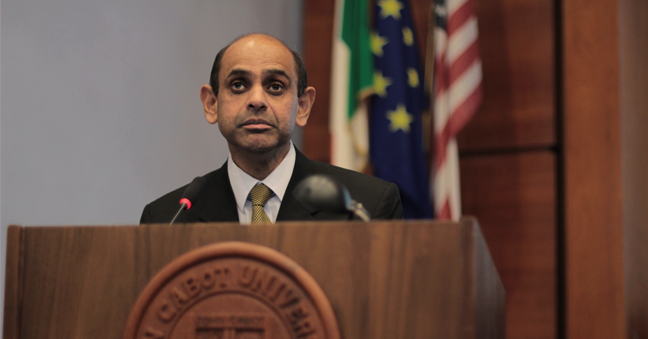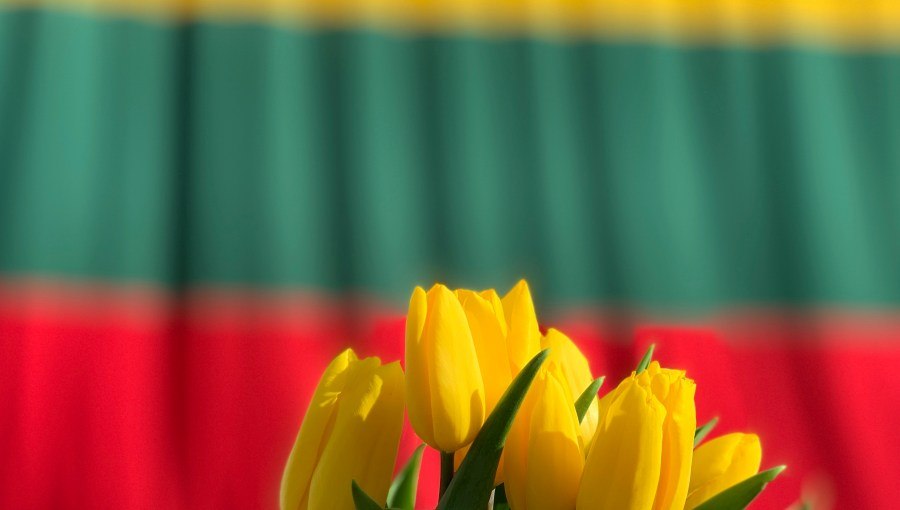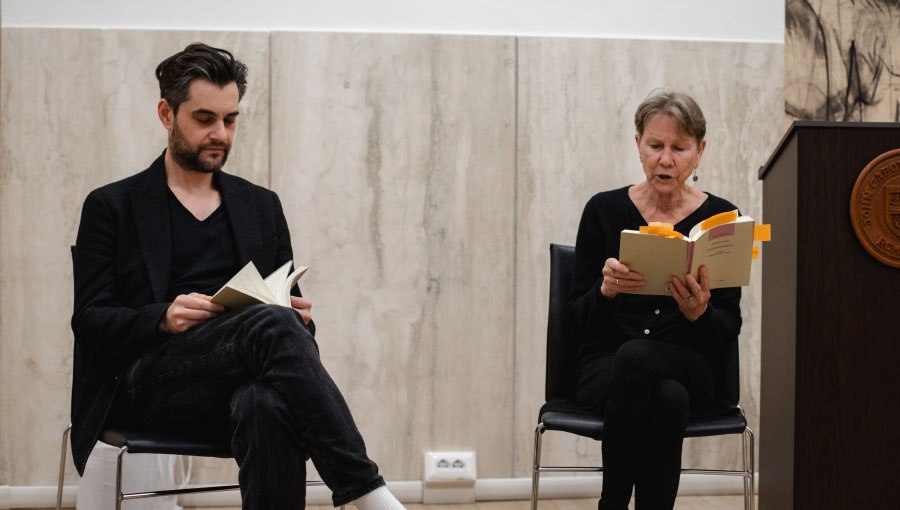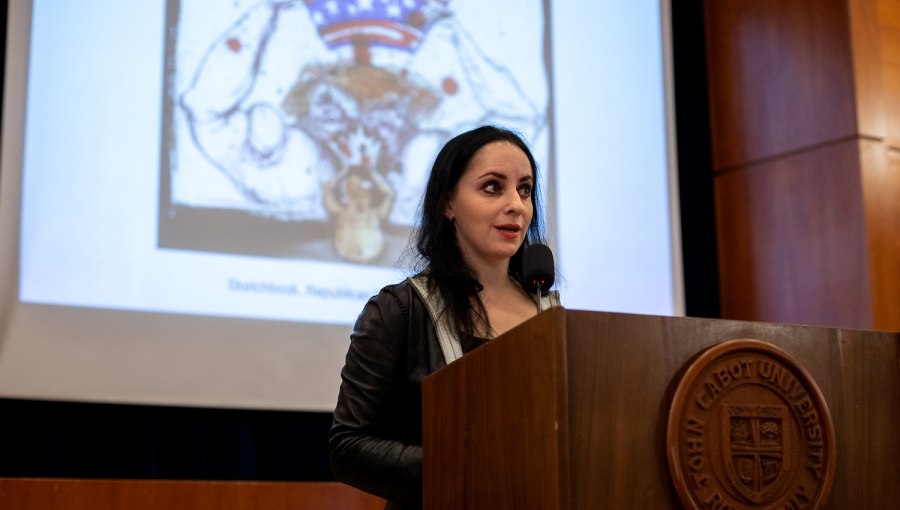JCU IR Society Welcomes Pakistani Ambassador to Italy
On February 1, 2016, the JCU International Relations Society welcomed the Pakistani Ambassador to Italy, Nadeem Riyaz, to speak about Pakistan’s foreign policy and challenges for the future.
Ambassador Riyaz opened the conference by giving statistical information about Pakistan. He highlighted how the country is a very young one, with more than 30% of the population being under the age of 30. Speaking of the country at large, he said: “We are a country that harbors no harm towards anyone. We are a nuclear power, but only for defense purposes.”
The ambassador then moved to the challenges that Pakistan faces going into the future: countering terrorism, improving its image abroad, increasing trade and investments, and dealing with Pakistan’s neighboring countries. Riyaz spoke about how terrorism came to exist in the area, a result of the Mujahideen militias created to fight the Soviet Union. After the war, and after being abandoned by the institutions, the Mujahideen became the Taliban. Pakistan, Riyaz continued, has been very involved in the fight against terrorism, managing to clear 97% of its territory from the presence of terrorists.
The ambassador also mentioned how an important objective of the government is that of improving Pakistan’s image abroad. In fact, he said, the image that a lot of people have of Pakistan is that of a backward country. However, this is not the case, as the schooling level is continuously growing, and Pakistan’s classrooms look no different than European or American ones.
Ambassador Riyaz continued by describing Pakistan’s main objective both for the region and for the world: seeking peace. “It’s only when a diplomat fails, that force comes into action. And I’m a firm believer that you can resolve anything and everything in negotiations,” Riyaz said. Finally, the ambassador spoke on the need for investments in Pakistan, to bring both wealth and wellbeing to the country. He was adamant about wanting foreign investments in the country, but not aid. “Our minister believes in trade, not in aid. And that’s what we’re striving to do,” he said.
The conference was followed by a long Q&A, in which Riyaz clarified Pakistan’s position on various issues. When asked about the specific strategies, other than combat actions, that Pakistan is using to fight terrorism, he mentioned the great success the country’s de-radicalization centers are having. Moreover, he focused on the key role that education plays. An example he brought forward is that of Madrassas, Islamic religious schools, that are now being reformed “by giving them a curriculum, mixing the traditional and the modern. People have to learn English now, and have an education similar to that offered in schools,” Riyaz said.
The ambassador was also asked to weigh in on the possibility of Pakistan getting involved in the Iran-Saudi Arabia dispute, Pakistan being a country with a Sunni majority, like Saudi Arabia.
“Pakistan will help Saudi Arabia safeguard its territory, if needed, because that is where Mecca is. But we are not getting involved in any conflict in Yemen, because as soon as you get involved in a conflict, you get pulled into another. Neither will we get involved in Ukraine,” Riyaz said.
Learn more about the Department of Political Science and International Affairs at John Cabot University







